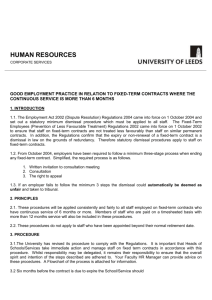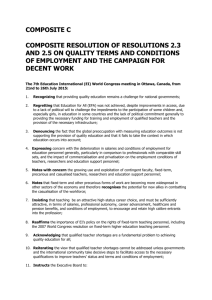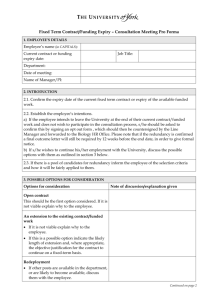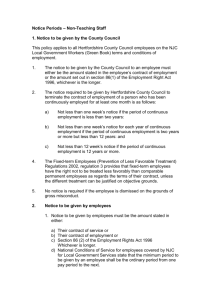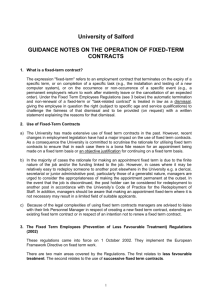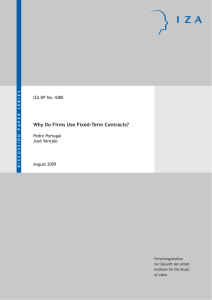Fixed-term contracts: Friend or foe? Samantha Murray
advertisement
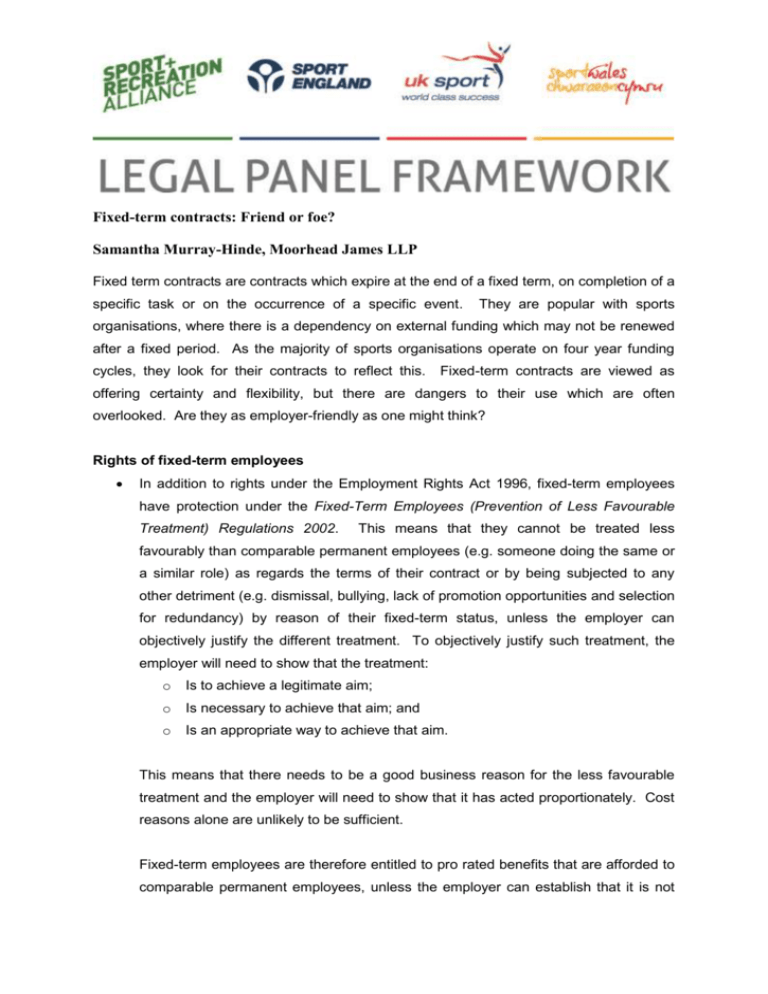
Fixed-term contracts: Friend or foe? Samantha Murray-Hinde, Moorhead James LLP Fixed term contracts are contracts which expire at the end of a fixed term, on completion of a specific task or on the occurrence of a specific event. They are popular with sports organisations, where there is a dependency on external funding which may not be renewed after a fixed period. As the majority of sports organisations operate on four year funding cycles, they look for their contracts to reflect this. Fixed-term contracts are viewed as offering certainty and flexibility, but there are dangers to their use which are often overlooked. Are they as employer-friendly as one might think? Rights of fixed-term employees In addition to rights under the Employment Rights Act 1996, fixed-term employees have protection under the Fixed-Term Employees (Prevention of Less Favourable Treatment) Regulations 2002. This means that they cannot be treated less favourably than comparable permanent employees (e.g. someone doing the same or a similar role) as regards the terms of their contract or by being subjected to any other detriment (e.g. dismissal, bullying, lack of promotion opportunities and selection for redundancy) by reason of their fixed-term status, unless the employer can objectively justify the different treatment. To objectively justify such treatment, the employer will need to show that the treatment: o Is to achieve a legitimate aim; o Is necessary to achieve that aim; and o Is an appropriate way to achieve that aim. This means that there needs to be a good business reason for the less favourable treatment and the employer will need to show that it has acted proportionately. Cost reasons alone are unlikely to be sufficient. Fixed-term employees are therefore entitled to pro rated benefits that are afforded to comparable permanent employees, unless the employer can establish that it is not reasonable in all the circumstances and/or that it is inappropriate to use the pro rata principle. Employers should be careful if using successive fixed-term contracts. Employees who have been continuously employed for four years or more on a series of successive fixed-term contracts are automatically deemed to be permanent employees (that is, employed on an indefinite contract) unless the continued use of such contacts can be objectively justified. This includes cases where the original contract has been renewed or extended, or where another contract has been entered into on expiry of the original. It does not include cases where there has only been one fixed-term contract, of whatever duration, that has not been renewed or extended. If an employee achieves permanent status, you must send them a written statement of variation in relation to their terms of employment. An employee who is dismissed before the expiry of a fixed-term contract may have a claim for wrongful dismissal unless there is provision in the contract for earlier termination on notice and the employer has complied with this, or unless the employer has grounds on which to dismiss without notice. The expiry / non-renewal of a fixed-term contract amounts to a dismissal for unfair dismissal and redundancy purposes. For a dismissal to be fair (assuming the employee has sufficient service), it must be for a potentially fair reason - capability, conduct, redundancy, contravention of a statutory obligation or some other substantial reason. The usual ‘band of reasonable responses’ test will apply as to whether it was fair to dismiss for that reason. Points to Consider Before entering into or renewing a fixed-term contract, consider whether there are objective grounds for its use and record these grounds. If the contract has already been renewed and the employee has attained four years’ continuous service (or will do so before the expiry date), consider whether there were objective grounds at the time renewal took place and record these grounds. Make sure that the fixed-term contract includes a break clause so that it can be brought to an end sooner than its expiry date, if need be. In terms of the fixed-term period, ensure that provision is included for the contract to terminate ‘without the need for notice’ on the expiry date. That way, the employer is protected in the event it forgets to serve notice. Keep track of a fixed-term employee’s length of service in terms of unfair dismissal and redundancy rights and the expiry date of the contract. If a fixed-term contract is not going to be renewed, establish in good time the potentially fair reason that will be relied on. Ensure that a fair procedure is followed and, if notice is required, that this is given in good time and/or it is paid in lieu. Audit contract terms and benefits offered to fixed-term employees, looking for differences to those offered to permanent staff and make any necessary changes or consider whether the differences can be objectively justified and record these grounds. Ensure that fixed-term employees have access to adverts for permanent vacancies. The use of fixed-term contracts can be beneficial, particularly to smaller organisations where funding is an issue, but organisations should be careful to ensure that they are properly drafted and audited.
